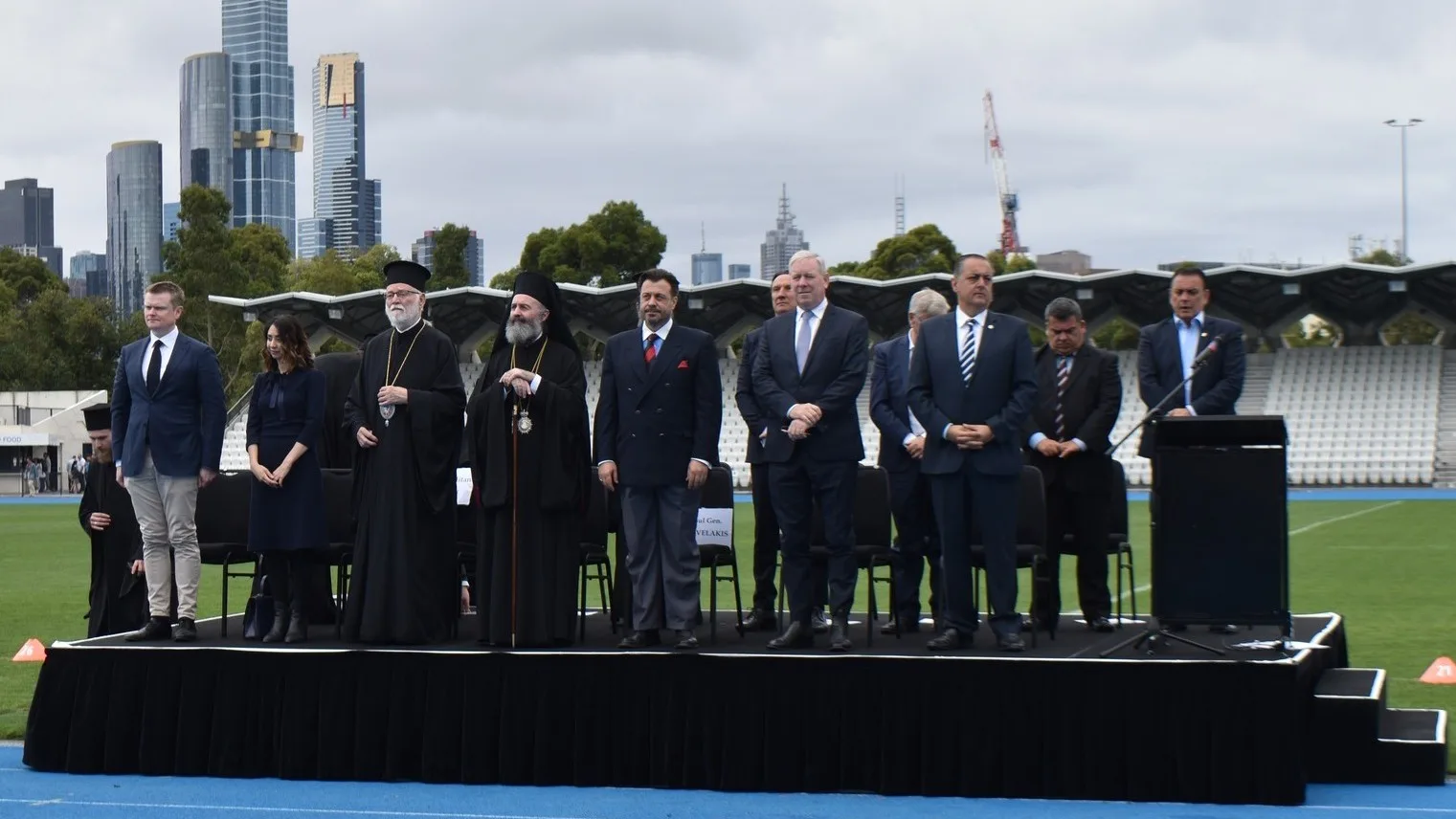The VIP stands at Greek Australian community events tell their own story. Rows of suited men form a sea of leadership that has barely changed in decades, with perhaps a splatter of token women.
“When the wider community sees no women on the stand, they make judgments,” says outgoing MP Maria Vamvakinou, the first Greek-born woman in Australia’s Parliament.

The struggle for representation is an old story. Researcher Juliana Charpantidou points out, “When researching The Embodiment of a Distant Homeland and the Greek Community of Melbourne (GCM), women didn’t appear from its foundation until 1972, though they got to vote in community elections in 1952.”
Ethnographic photographer Effy Alexakis’ research highlights a 1956 program aimed at redressing the gender imbalance among Greek migrants. Between 1957 and 1963, more Greek women than men arrived in Australia, many aboard “bride ships” as prospective wives. By 1981, the ratio of Greek men to women was 106 men for every 100 women. Greek women entered factory work, taught in Greek afternoon schools, or worked as translators. The next generation battled for the right to pursue education and choose their own partners though equality remained elusive.
Angelica Spiliopoulos-Angsiting, NUGAS President, confirms the persistence of tokenism.

“Make sure we get the women in the photo, but without acknowledging there is a deeper issue,” she says, frustration evident in her voice.
“When I first started participating in Greek Australian committees, I was disrespected in small ways. ‘Of course, I will help in the kitchen.’ ‘Of course, I’ll take care of the kids.’ ‘Of course, I’ll be the secretary.'”
These “of course” moments carry generations of unspoken expectations.
“It made me feel that I had to do this as a team player, but there were stereotypes that I let slide. It helped me get the higher-up roles, so I can bring change,” Spiliopoulos-Angsiting admits, highlighting the uncomfortable compromises many women make to progress.

Miltiadis Paikopoulos of the Pallaconian Brotherhood notes an interesting irony: the Greek word for brotherhood (η αδελφότητα) is feminine in the Greek language.
“Angelica is our vice president and was our previous president, and we welcome more women,” he says, adding that conversations about changing the name sometimes surface.
Vamvakinou endorses quotas, pointing to Victoria’s Parliament’s diversity as a positive example.
For Pontians, quotas were never needed. Simela Stamatopoulos of the Australian Federation of Pontian Associations points to the Pontian “attitude”.


“In the past, some people have commented that Pontian women are stubborn and strong-willed, but this has not been my experience as to why they are accepted in leadership roles,” she says.
“It never even occurred to me that there could be a problem.”
Author Peter Andrinopoulos, who wrote Greek Women of Influence 1821-2021, states, “Women are put in the background, and I think it’s important that there’s equality between the sexes. That’s why I wrote this book.” He dismisses outdated notions: “I remember people saying, ‘Women belong in the kitchen,’ but that idea is long gone.”

Varvara Ioannou, President of the Food for Thought Network (FFTN), sees glacial progress.
“We still see pictures of men leading while women are still doing an unfair share of caring, unpaid work. They don’t have time to attend events or pose for photo ops with ministers in the middle of the day,” Varvara points out.
She adds that more women are, however, exploring their Greekness.

“When the FFTN started, we didn’t see as many women’s day events, and it wasn’t ‘cool’ to be Greek at the time,” she says.
“I kept the name of the organisation gender-neutral to also draw men, because we need allies. The shift needs to come from both men and women,” she adds.
Varvara adds another layer to the discussion, pointing to the “tall poppy syndrome.” She believes women of her generation are more likely to tear each other down.

GCM Committee member Spiridoula Demetriou asks the tough question: “How often do women put stumbling blocks in front of women? Let’s face it, why would any sector of society give up power that benefits them? Women also uphold the patriarchy. Perhaps decisively.”
Beyond leadership, Greek Australian women face another unspoken crisis: burnout. Social worker Christina Roma exposes this hidden epidemic.
“The challenge we have with Greek Australian women is that we don’t have enough evidence. I took on eight new counselling patients last month. Same issues: burnout, juggling everything at work and home, and they are dismissed by their partners, families, or society when they want to talk about it,” Christina says.

The great-granddaughters of the Souliot women who danced off cliffs in defiance of oppression are still fighting their own battles – not with invaders, but with outdated mindsets and even within themselves, balancing sacrifice and obligation with their own need for self-care.
This year, The Greek Herald was inundated with hundreds of nominations for unsung heroines. And yet, at major Greek Australian events, the same scene repeated: VIP stands lined with men in suits.
So, where are Greek Australian women today?
Everywhere. But the question remains: When will they be seen?
